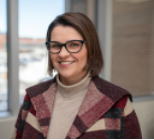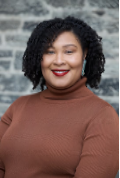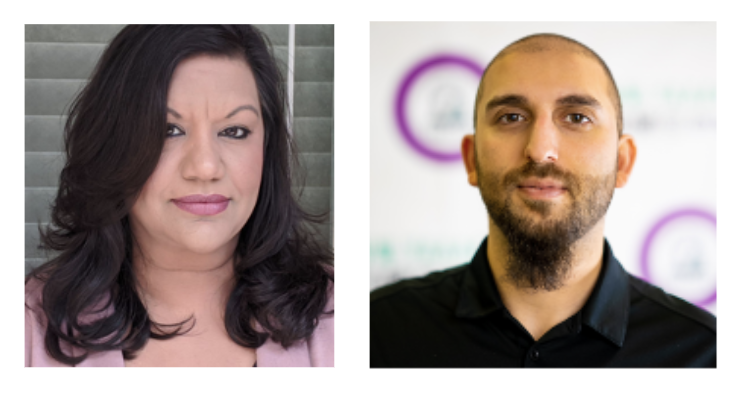This week, IEN features the work of scholars seeking to prioritize decolonization and promote indigenous ways of knowing in professional learning practices. This post is the seventh in a series featuring excerpts of interviews with presenters participating in the Educational Change Special Interest Group sessions at the upcoming Annual Conference of the American Educational Research Association in Philadelphia in April. This post includes presenters from the session titled: “Decolonizing Professional Learning.” For previous posts in this series, see: Practices, Programs and Policies for Instructional Coaching, Transforming Organizational Systems for Educational Equity, Organizational Change and Equity in Professional Learning, Arts and Sports Programs, and Summer Camps, Driving Change in Higher Education, Racial Justice and Educational Equity and Teachers as Agents of Change. Next week, IEN will feature two additional interview series from sessions titled: “(Re)Conceptualization Change at Scale: New Visions for and Models of Educational Change” and “Developing Authentic Research Practice
Partnerships (RPPs) for educational Change.” These interviews are part of the Lead the Change series produced by AERA’s Educational Change Special Interest Group. The full interviews can be found on the LtC website. The LtC series is currently produced by Alex Lamb (Outgoing Series Editor) and Liz Zumpe (Incoming Series Editor).
Introduction to the Symposium: Decolonizing Professional Learning — Joelle Rodway, Ontario Tech University
AERA’s 2024 annual meeting calls the educational research community to action in service of dismantling racial injustice and constructing educational possibilities that center the humanity and learning of all people. In Canada, we are also called upon to engage in the critical work of decolonization, dismantling the colonial infrastructures that maintain our K–12 and post-secondary education systems as we respond to the Truth and Reconciliation Commission of Canada’s (2015) Calls to Action, which includes changes directly related to our schools and school systems.
In response to these calls, researchers and educators have been engaged in the unlearning, learning, and relearning (Lopez, 2020) required to rebuild learning systems that are inclusive of Indigenous and other ways of knowing and doing and decentering Eurocentric pedagogical practices. In August 2022, a convening of 30 researchers and educators from across Canada gathered at Memorial University in St. John’s, Newfoundland at an event called Decolonizing Professional Learning. Over the course of three days, we came together in sharing circles, small fires, a public panel, and various writing activities to engage our guiding questions:
- Where are we coming from? How do we situate ourselves as educational leaders and researchers in these spaces?
- What work and research are we doing in our representative regions to decolonize professional learning in the context of K–12 education? What can we learn from each other?
- In what ways are we disrupting conventional views of professional learning to create spaces that honor multiple knowledges and ways of knowing?
In this issue of Lead the Change, we seek to engage you in the learning from three of the groups who attended this meeting. These three groups are also actively involved in building a national network called Decolonizing Possibilities Education Change Network, a pan-Canadian network of educational researchers and their practitioner colleagues that seeks to deepen this work of dismantling colonial systems and build equitable learning spaces that honor the humanity of all people. We hope sharing our work with you opens up space for further knowledge sharing and collaboration and inspires you to take up AERA’s call to respond to racial injustice by creating new educational opportunities that strengthen our societies and benefit us all.
A pan-Canadian network of educational researchers and their practitioner colleagues seeks to deepen this work of dismantling colonial systems.
Building Relationships and Decolonizing Possibilities through Education Change Networks — Leyton Schnellert, University of British Columbia; Bonny-Lynn Donovan, University of British Columbia; Sara Florence Davidson, Simon Fraser University
Lead the Change (LtC): The 2024 AERA theme is Dismantling Racial Injustice and Constructing Educational Possibilities: A Call to Action. How does your research respond to this call?
Leyton Schnellert, Bonny-Lynn Donovan and Sara Florence Davidson (LS, BLD & SFD): Professional learning structured as collaborative inquiry between educators and Black, Indigenous, and people of color (BIPOC) community partners and researchers has the potential to foster culturally sustaining and responsive practices that broaden and decolonize understandings of student success and pedagogy (Lopez, 2020; Paris, 2021; Schnellert et al., 2022). Our research offers an example of K-12 educators who have primarily white/settler identities working with Indigenous educators, Knowledge Holders, and researchers within an education change network (ECN). In the Welcoming Indigenous Ways of Knowing ECN Indigenous educators and Knowledge Holders participated in all aspects of the ECN from planning to implementation. Sylix Indigenous Knowledge Holders shared local knowledge and protocols to support educators in welcoming local Indigenous ways of knowing, being, and doing into their classrooms. Our time together also included attention to anti-racism, The Truth and Reconciliation Commission’s (2015) Calls to Action, and the lasting impact of Canada’s Indian Residential Schools.
Our research offers an example of K-12 educators who have primarily white/settler identities working with Indigenous educators, Knowledge Holders, and researchers within an education change network.
LtC: What are some of the ideas you hope the field of Educational Change and the audience at AERA can learn from your work related to practice, policy, and scholarship?
LS, BLD & SFD: K-12 educators in our context experienced meaningful engagement with local Indigenous knowledge through their interactions with Syilx Knowledge Holders. Findings derived through analysis of interviews, participants’ reflective writing, and field notes also revealed that education change network activities supported educators to engage with difficult knowledge as they awakened to structural inequities. Educators reported conceptual learning and shifts in practice through participation in large group presentations from Indigenous Knowledge Holders and university researchers, and “small fires.” Small fires are a form of action research circles introduced to us by Indigenous educational leader Pamela Spooner based on her experience in an Indigenous women’s leadership group. We hope that our learning relating to developing teacher capacity to enact decolonization and reconciliation in collaboration with local Indigenous Knowledge Holders will contribute to others seeking to engage in this work.
Refusing Erasure: Black and Indigenous Women Educational Leaders Talk Back! — Whitneé L. Garrett-Walker, Ed.D (She/Her), Natchitoches Tribe of Louisiana, enrolled member University of San Francisco
Lead the Change (LtC): The 2024 AERA theme is Dismantling Racial Injustice and Constructing Educational Possibilities: A Call to Action. How does your research respond to this call?
Whitneé L. Garrett-Walker (WGW): The field of educational leadership is at a crucial moment for both theory and practice (Johnson & Pak, 2018; Ladson-Billings, 2021; Lopez, 2019). It is finally reckoning with the idea that school leadership must embrace diversity, equity, and inclusivity, and the nuances of how identity impacts both leadership and the ability to interrupt systems of oppression across schools. While there is research that deconstructs the need for school administrators to engage in equity, diversity, and inclusion, few research studies have explored how racialized and gendered school administrators navigate school leadership (Garrett-Walker, 2021). There are gaps in the literature that speak to Black and Indigenous women school administrators’ experiences (Garrett-Walker et. al forthcoming; Faircloth & Tippeconnic, 2013). This paper focuses on the unearthing of the long legacies of the presence, power, and potential of Black and Indigenous women in educational leadership positions and how they engage in freedom-fighting within their schools.
LtC: What are some of the ideas you hope the field of Educational Change and the audience at AERA can learn from your work related to practice, policy, and scholarship?
WGW: It is my hope that the field of Educational Change and the audience at AERA will learn more about how Black and Indigenous women in educational leadership approach and continue in the work, despite many of the challenges faced. I also hope to be in conversation with many other scholars who do similar work for the betterment of us all.
Few research studies have explored how racialized and gendered school administrators navigate school leadership.
Addressing Truth and Then Reconciliation Education as Professional Learning — Lisa Howell and Nicholas Ng-A-Fook, University of Ottawa
Lead the Change (LtC): The 2024 AERA theme is Dismantling Racial Injustice and Constructing Educational Possibilities: A Call to Action. How does your research respond to this call?
Lisa Howell and Nicholas Ng-A-Fook (LH & NN): Our research has spanned a 6-year collaboration between the University of Ottawa, Faculty of Education, and the First Nations Child and Family Caring Society (Caring Society). The Caring Society stands with First Nations children, youth, and families so they have equitable opportunities to grow up safely at home, be healthy, get a good education and be proud of who they are. The Caring Society also develops educational resources so that educators and students across Canada can actively participate in social justice reconciliation initiatives (Howell & Ng-A-Fook, 2023a). Transforming educational possibilities was a focus of many of the Calls to Action by the Truth and Reconciliation Commission of Canada (2015). Our study contributes to the emerging field of truth and reconciliation research in the context of the age of apology in Canada whereby politicians engage in public expressions of remorse for past injustices. (Howell & Ng-A-Fook, 2023b). Our findings suggest that when educators engage in sustained and collaborative professional learning communities, opportunities emerge for profound (un)learning, and commitments to social justice actions to end structural inequities and systemic racism (see Howell & Ng-A-Fook, 2022, 2023a).
LtC: What are some of the ideas you hope the field of Educational Change and the audience at AERA can learn from your work related to practice, policy, and scholarship?
LH & NN: Today, several government institutions and citizens in different parts of the world continue to deny or distance themselves from the violent history and legacy of settler colonial harms (Carleton, 2021; Howell & Ng-A-Fook, 2022). Such active distancing from historical “truths” affords the intergenerational beneficiaries of settler colonialism, including some educators, to superficially recognize the lived experiences of Indigenous Peoples (Coulthard, 2014). Consequently, there is much work to be done within different educational systems to reimagine our future relations both inside and outside the context of public education beyond settler colonial moves to innocence (Madden, 2019; Wark, 2021).
Government institutions and citizens in different parts of the world continue to deny or distance themselves from the violent history and legacy of settler colonial harms.
It is our hope that our research might provide curricular and pedagogical possibilities for (re)thinking what decolonizing professional (un)learning might look like in practice, and what potential transformational changes emerge when we seek to co-create, co-sustain, and co-support such spaces with educators and partners (Howell et al., 2023).
Concluding Thoughts from the Symposium Discussant: Decolonizing Professional Learning — Dr. Vidya Shah, York University
The three papers featured in this AERA symposium and discussed above collectively speak to the limits of education systems that were built on the logics of colonialism and white supremacy and continue to uphold these logics. Garrett-Walker (2024) actively names and disrupts these logics in speaking to the importance of centering the experiences of Black and Indigenous women leaders, and documenting counter-stories of presence, power, and potential in their leadership. Howell & Ng-A-Fook (2004) and Schnellert et al. (2024) describe the possibilities of intentional and consistent interventions that situate the possibilities for professional learning between educators within the system and Indigenous Knowledge Holders and researchers outside of this system. Questioning the importance of the “system” and decentering Eurocentric knowledges systems demands that Indigenous and community knowledges are centered and valued.
These papers also speak to the importance of relationships in decolonizing work. Howell & Ng-A-Fook (2004) explore how educators are made in and through relations as they face long-held “truths” that uphold historical and contemporary settler colonial realities, such as the distanced and innocent positions so easily assumed in an age of apology. Schnellert et al. (2024) invite us to consider the relations necessary to engage in respectful and reciprocal collaborative inquiries that account for power asymmetries. Garrett-Walker (2024) speaks to the importance of solidarity and co-conspiratorship, a type of engagement that requires us to see ourselves as extensions of one another and be willing to risk for the collective. Professional learning needs to offer educators opportunities to practice relational accountability and solidarity, and to make sense of who we are in relation to (O)thers and the more-than-human world.
Professional learning needs to offer educators opportunities to practice relational accountability and solidarity.
Finally, these three papers invite us to imagine otherwise. Decolonizing professional learning must offer a different way, a different space, and a different experience than being made in and through intersecting systems of oppression. Schnellert et al. (2024) assert that efforts at reconciliation need to happen alongside pedagogical and system transformation. Garrett (2024) speaks to the idea of freedom-fighting and that the very experiences of Black and Indigenous women are central to imagining possibilities for educational justice. Howell & Ng-A-Fook (2004) speak to the “co” in creating, sustaining, and supporting learning between educators and partners.
These papers invite us to question our common-sense assumptions about concepts such as professional, learning, and professional learning, disrupting notions that are disconnected, apolitical, ahistorical, and disembodied. We might be well-served to imagine possibilities for professional learning when we center examples of (un)professional (un)learning.
References:
Introduction to the Symposium: Decolonizing Professional Learning
Truth and Reconciliation Commission of Canada. (2015). Truth and Reconciliation Commission of Canada: Calls to action.
Lopez, A. (2020). Decolonizing educational leadership: Exploring alternative approaches to leading schools. Palgrave MacMillan.
Building Relationships and Decolonizing Possibilities through Education Change Networks
Hare, J., & Davidson, S. F. (2019). Learning from Indigenous Knowledge in education. In D. Long & G. Starblanket (Eds.), Visions of the heart: Canadian Aboriginal issues (5thed., pp. 203–219). Oxford University Press.
Lopez, A. (2020). Decolonizing educational leadership: Exploring alternative approaches to leading schools. Palgrave Macmillan.
Paris, D. (2021). Culturally sustaining pedagogies and our futures. The Educational Forum, 85(4), 364–376. https://doi.org/10.1080/00131725.2021.1957634.
Schnellert, L., Davidson, S. F., & Donovan, B. L. (2022). Working towards relational accountability in education change networks through local Indigenous ways of knowing and being. Cogent Education, 9(1). https://doi.org/10.1080/2331186X.2022.2098614
Truth and Reconciliation Commission of Canada. (2015). Truth and Reconciliation Commission of Canada: Calls to action. https://publications.gc.ca/collections/collection_2015/trc/IR4-8-2015-eng.pdf
Refusing Erasure: Black and Indigenous Women Educational Leaders Talk Back!
Faircloth, S. C., & Tippeconnic III, J. W. (2013). Leadership in Indigenous education: Challenges and opportunities for change. American Journal of Education, 119(4), 481-486.
Garrett-Walker, W. L. (2021). Replanting a wild seed: Black women school leaders subverting ideological lynching. Doctoral Dissertations. https://repository.usfca.edu/diss/567
Johnson, L., & Pak, Y. (2018). Leadership for democracy in challenging times: Historical case studies in the United States and Canada. Educational Administration Quarterly, 54(3), 439–469.
Ladson-Billings, G. (2021). I’m here for the hard reset: Post pandemic pedagogy to preserve our culture. Equity & Excellence in Education, 54(1), 68–78.
Lopez, A. E. (2019). Anti-Black racism in education: School leaders’ journey of resistance and hope. In R. Papa (Ed.), Handbook on promoting social justice in education (pp. 1935–1950). Springer International.
Addressing Truth and Then Reconciliation Education as Professional Learning
Carleton, S., 2021. “I don’t need any more education”: Senator Lynn Beyak, residential school denialism, and attacks on truth and reconciliation in Canada. Settler Colonial Studies, 11(4), 466-486. https://doi.org/10.1080/2201473X.2021.1935574.
Coulthard, G.S., 2014. Red skin, White masks: Rejecting the colonial politics of recognition. University of Minnesota Press.
Howell, L., & Ng-A-Fook, N. (2023a). Just Because we’re small doesn’t mean we can’t stand tall: Reconciliation Education in the Elementary School Classroom.Studies in Social Justice, 17(1), pp. 112-135. https://doi.org/10.26522/ssj.v17i1.4044
Howell, L. & Ng-A-Fook, N.(2023b). Truth and then reconciliation research: An emerging field of educational studies. In Robert Tierney, Fazal Rizvi & Kadriye Ercikan (Eds.) International Encyclopedia of Education (pp. 272-282). Elsevier.
Howell, L. & Ng-A-Fook, N. (2022). Unsettling beneficiaries as curriculum inquiries: A case of Senator Lynn Beyak and anti-Indigenous systemic racisms in Canada. Canadian Journal of Education, 45(1), pp. 1-34. https://doi.org/10.53967/cje-rce.v45i1.4787
Howell, L. & Ng-A-Fook, N., & Giroux B. (2023, January).Unsettling professional learning: Heart, spirit, and teacher (un)learning. Education Canada Network Magazine. https://www.edcan.ca/articles/professional-learning-in-a-community-of-relations/.
Madden, B. (2019). A de/colonizing theory of truth and reconciliation education. Curriculum Inquiry, 49(3), 284-312.
Truth and Reconciliation Commission of Canada. (2015). Final report of the Truth and Reconciliation Commission of Canada. Volume 1: Summary. Honouring the Truth, Reconciling the Future. James Lormier & Co. Ltd.
Wark, J. (2021). Land acknowledgements in the academy: Refusing the settler myth, Curriculum Inquiry, 51(2), 191-209. https://doi.org/10.1080/03626784.2021.1889924
Concluding Thoughts from the Symposium Discussant: Decolonizing Professional Learning
Garrett-Walker, W. (2024). Refusing erasure: Black and Indigenous women educational leaders talk tack! American Educational Research Association Annual Meeting. Philadelphia, PA.
Howell, W. & Ng-A-Fook, N. (2024). Addressing truth and then reconciliation education as professional learning. American Educational Research Association Annual Meeting. Philadelphia, PA.
Schnellert, L., Donovan, B. & Davidson, S.F. (2024). Building relationships and decolonizing possibilities through education change networks! American Educational Research Association Annual Meeting. Philadelphia, PA.




